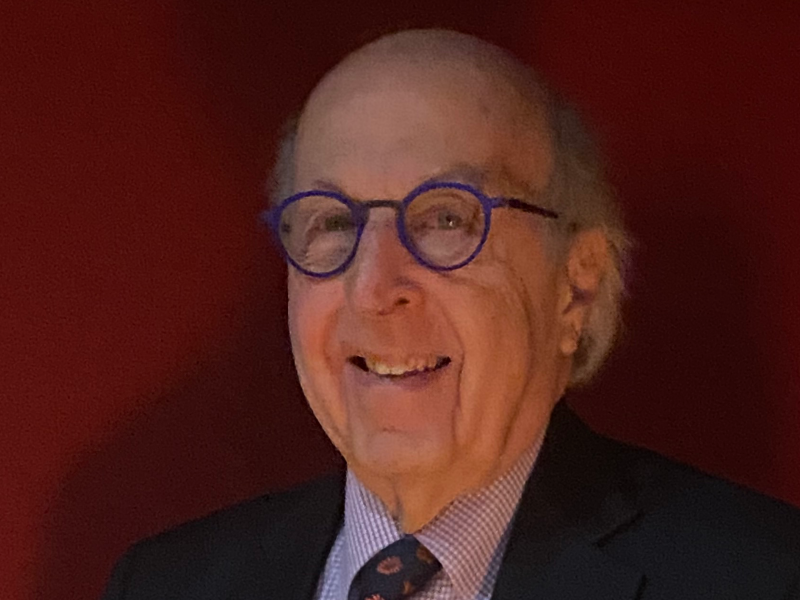On Day 1, Prof. Gorovitz describes his early years as an only child growing up in the Boston area in a home that emphasized the cultural rather than spiritual aspects of Judaism. He attributes his early love of both radio and language to his parents. He briefly mentions his time at the Massachusetts Institute of Technology (MIT), where he received a BS in Humanities and Science in 1960, and began his interdisciplinary academic exploration. He makes specific mention of the support he received from Abner Shimony, his undergraduate advisor.
Prof. Gorovitz briefly mentions completing his PhD in Philosophy at Stanford University in three years. He discusses joining the faculty at Case Western Reserve University (CWRU) in 1964, and credits Fred Robbins, (then Professor of Pediatrics at CWRU, appointed Dean of the medical school in 1966) as an influential figure for him during this period.
Prof. Gorovitz describes the significance of the kidney dialysis dilemma in Seattle in the early 1960s, as covered by Shana Alexander in the 1962 LIFE Magazine article “They Decide Who Lives, Who Dies,” as inspiration for his future philosophical questions about resource allocation and medical ethics. These questions inspired Prof. Gorovitz to author “Ethics and the Allocation of Medical Resources,” published in Medical Research Engineering in 1966, one of the earliest, if not first, medical ethics articles by a philosopher. He discusses other works produced early in his career.
On Day 2, Prof. Gorovitz shares memories from a seminar he organized at Haverford College in Pennsylvania in the summer of 1974, which brought together people interested in exploring bioethical issues and pedagogy. He discusses the day-to-day schedule of the seminar and the subsequent publications (by attendees) that grew out of these conversations. He recounts the end-of-summer party and its coincidence with the delivery of President Richard Nixon’s resignation speech in 1974.
Prof. Gorovitz shares lessons that led to his pedagogical approach. He draws a distinction between bioethics and medical ethics, and offers a definition for bioethics. He names environmental sciences, social sciences along with specialized disciplines like neuroscience and traditions of indigenous communities as meaningful fields for bioethics engagement.
Prof. Gorovitz spends significant time discussing resource allocation. He discusses his two roles–both appointed and voluntary–where he has practiced and applied decision-making as an ethicist and educator. As an example, he describes his work with The New York State Task Force on Life and the Law, during which he took part in publishing a report about surrogate decision-making for “unbefriended elderly,” or those who do not have family to make their medical decisions.
Prof. Gorovitz discusses joining the faculty at Syracuse in 1986 and his approach to teaching, which prioritizes listening and empathy for his students. He describes his emphasis on the theatrical in teaching, including collaboration with colleagues to add elements of performance to his lessons.
Throughout Day 2, Prof. Gorovitz describes various experiences working through ethical problems in the policy context. He discusses his work on the issues of brain death and organ transplants, and his time serving on the staff of the House Committee of Science and Technology from 1982-84. He also mentions his role on the Empire State Stem Cell Board, and compares this ethics committee, which was open to the public, to the closed format of the New York State Task Force on Life and Law. Prof. Gorovitz discusses the lives of his grandchildren, and his experience of raising his own children when they were young. In the final moments of the interview, he shares a reflection on seeing bioethics and medical ethics in most places that he looks.
This interview may be of interest to those wishing to learn more about: bioethics, history of bioethics in the US, bioethics education, bioethics at Case Western Reserve University, ethics committees and commissions, brain death criteria, bioethics pedagogy and the founding figures of bioethics.
